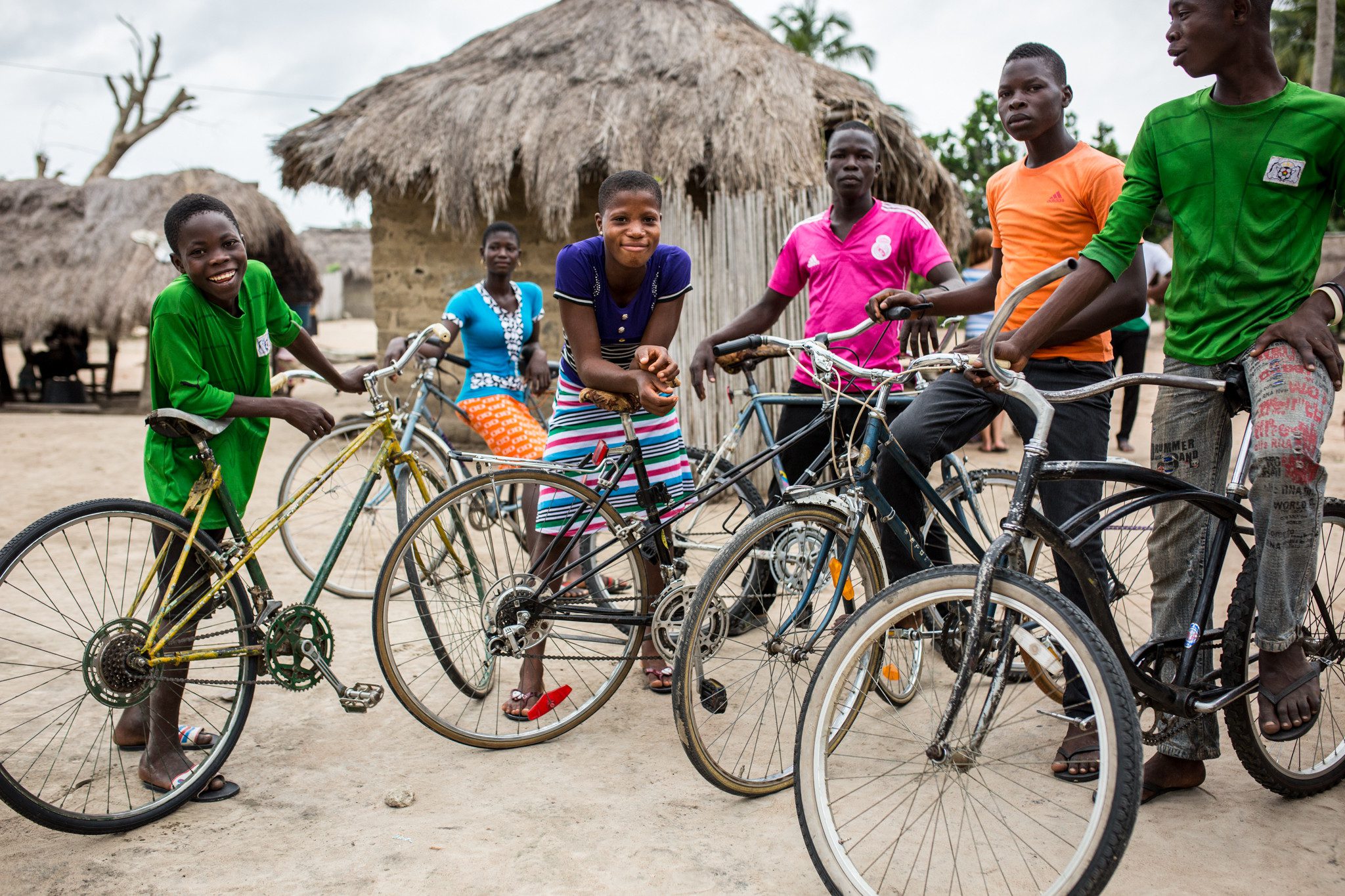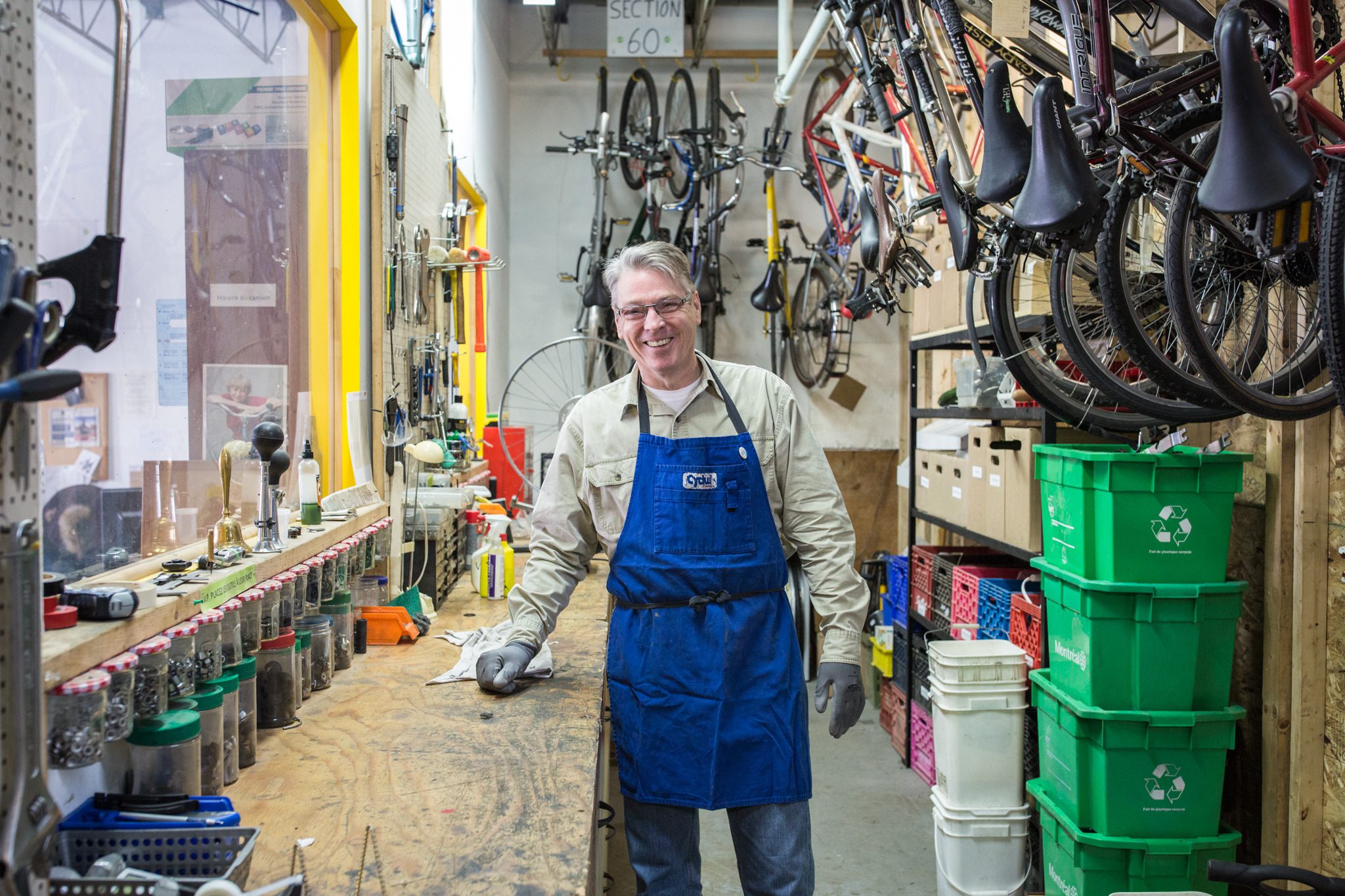For two decades, Cyclo Nord-Sud has been improving lives with bikes
The Montreal-based group has expanded its focus from communities abroad to those here at home


“I study a lot because I have an objective. I want to become something in life, but my father doesn’t have a lot of money. I want to become a diplomat. I want to work in an office and share ideas with others,” says 15-year-old Vastie Jean-Baptiste. She has a plan. To realize that plan, she needs to complete her education. She lives in Cap-Haitien, in northern Haiti. To get to school, Jean-Baptiste relies upon a used bike that travelled all the way from Quebec. Centrech, the organization that helped Jean-Baptiste find her wheels through the Vélo-Bisiklèt project, has been working with Cyclo Nord-Sud in Montreal since 2006. Close to 8,000 used bicycles collected throughout Quebec have afforded Haitians like Jean-Baptiste the mobility they require to get to school and work.
Claire Morissette, one of the pioneers behind the push to make Montreal more cycling-friendly with the activist group Le Monde à Bicyclette, recognized that bicycles could play a significant role in improving the lives of people in under-privileged nations. It led to the creation of Cyclo Nord-Sud in 1999, which makes it one of Canada’s oldest cycling-advocacy institutions. Since then, the organization has sent more than 60,000 used bicycles to partners in 21 countries in Africa and Latin America. At some point a question was raised: couldn’t some of those used bicycles find a home here?
“It was after we moved our offices to the Saint-Michel neighborhood of Montreal six years ago that we were forced to ask ourselves some hard questions. Being in one of the poorest neighborhoods in Montreal, we witnessed how a lack of transport equity adversely affected locals,’’ says Collin Mayrand, CNS general co-ordinator.

With the creation of the Vélorution Saint-Michel project three years ago, CNS has started to address the barriers to cycling at home. “There has been greater recognition of the need to focus on an equity-based approach to cycling in Europe and the U.S., but we’re a little behind in Canada. We absolutely support lobbying for better cycling infrastructure, but what if you cannot even afford a bike, let alone maintain it?’’ says Robin Black, project co-ordinator for sister project Vélorution CDN-NDG.
“Cycling is not only a means of transportation,” says Sue Montgomery, mayor of Côte-des-Neiges—Notre-Dame-de-Grâce. Her borough funds Vélorution CDN-NDG in its entirety. “For many, it is an opportunity for emancipation and a way to break isolation. Immigrant women, for instance, are not always comfortable with cycling. I am pleased that our borough supports a project that helps them develop their skills and sense of security when riding a bike.”
On most Thursday mornings, volunteers weave their way around obstacles at the CNS warehouse, helping to sort through donations of used bicycles, tires and bicycle parts amassed from bike-collection events throughout the province and bike-shop donations. Although there is talk of finding a larger space to accommodate new projects and a growing team, more funding needs to be secured. While CNS has had 20 years of concrete results and awards, it still struggles to secure stable financing. Cyclo has started to make inroads with the cycling industry as well as Canadians outside of Quebec. For now, Cyclo continues to rely upon its regular supporters and volunteers along with project funding to continue making cycling accessible to all, both at home and abroad.
